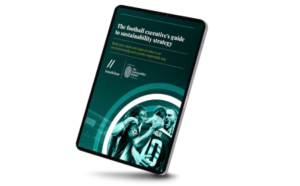
The Sustainability Report publishes our first white paper in collaboration with Touchline to explore the elements of a good sustainability strategy for football clubs, leagues and tournaments
Like so many sectors, the football industry was devastatingly exposed by the coronavirus pandemic. While most of the top European leagues and tournaments managed to navigate towards a conclusion, there was a peculiar and disconcerting feeling to it all.
And while many in the game will be hopeful that solutions will be found to the public health crisis and, in the short-term, bringing people back into stadiums safely, what’s happening now could be the tip of the iceberg.
Climate change and its impacts have the potential to impact football – both grassroots and professional – in an even more negative and profound way. A piece of research conducted by renowned journalist David Goldblatt and the Rapid Transition Alliance found that, in England alone, a quarter of its 92 professional league clubs could be affected by flooding every season.
Sustainability is a growing topic of interest within the world of football, but being sustainable is not just about managing risks like climate change – it’s about building a vision that captures value. It’s about strengthening relationships with fans. Becoming more efficient. And improving your brand and reputation.
Together with Touchline – our parent company and agency that specialises in sport, sustainability and reporting – we’ve put together ‘The football executive’s guide to sustainability strategy’ to help those in the football industry who want to get started with sustainability, but don’t know where to begin.
The guide explores how a football organisation can capture value through sustainability, and also how you can build your vision and align sustainability objectives with stakeholder priorities and international standards. We’ve reflected on some of the latest research in this area, and captured the experiences of some of the most renowned sustainability professionals in football, including:
– Patrick Gasser, UEFA’s head of football and social responsibility
– Bodour Al Meer, environment and sustainability senior manager for the Supreme Committee of Delivery and Legacy (Qatar 2022)
– Orjan Lundberg, sustainability expert for the Supreme Committee of Delivery and Legacy (Qatar 2022)
– Nico Briskorn, VfL Wolsburg’s head of corporate responsibility
– Andrea Maschietto, Juventus’ sustainability and external relations manager


Sports broadcasters must be comfortable talking about climate change
Sky Sports News presenter David Garrido reflects on the climate change training he’s undertaken, and stresses the importance of broadcasters keeping the issue alive […]


Olympic Movement accelerates transition to sustainability
The transition towards sustainable sport is gaining pace as more and more National Olympic Committees (NOCs) and International Federations (IFs), supported by the IOC, […]




Riyadh Supports Green Initiative To Make Proposed 2030 Asian Games ‘Most Environmentally-friendly Ever’
Riyadh’s support of green initiatives takes aim at making the proposed Asian Games in 2030 the most environmentally-friendly ever. Bid officials announced Tuesday that […]

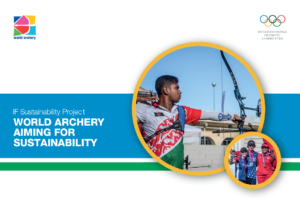
World Archery, a signatory of the UN Sports for Climate Action framework, has embarked on a mission to reassess their operations to find ways in which daily decisions and actions are contributing factors to a more sustainable sport.
At a federation level, every action can have a direct impact but also hold a highly symbolic power and deliver a strong message of awareness and motivation to all stakeholders.
World Archery’s impact assessment has identified, and therefore set their focus on, three key areas:
- Water
- Transportation
- Waste management
Click here to download the Case Study


Arsenal first Premier League club to sign United Nations climate change initiative
Arsenal become first Premier League club to sign UN Sports for Climate Action Framework; the initiative is seeking to tackle climate change and bring […]


Cabo Verde is First African NOC to Join UN Sports for Climate Action Framework
By Dela Ahiawor The Cabo Verde Olympic Committee has become the first National Olympic Committee (NOC) in Africa to join the UN Sports for Climate […]

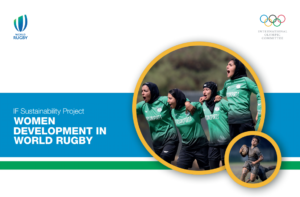
World Rugby launched its “Accelerating the Global Development of Women in Rugby 2017-2025" development strategy in order to position itself as a global leader in sport where women have equity on and off the field with representation and participation across all levels of rugby by 2025.
The strategy is built around five pillars:
- Sustainable growth in participation: continuing successful grassroot programs such as "Get into Rugby” for entry level and the development of coaches, match officials and medical staff to accommodate for this growth and developing toolkits, such as the Women Coaching Rugby Toolkit, to support member federations in growing female participation across the sport.
- High Performance Quality Competitions: ensuring the sport can deliver high-quality competitions at every level and across all different formats of the sport with a high entertainment value. The focus is set on both domestic and international competitions.
- Inspirational Leadership on and off the field: mandating that World Rugby’s board, committees, working groups and senior management levels should reflect best practices in terms of female representations
- Profile with Impact Inspiring Engagement: working to attract female viewers and fans through marketing and media initiatives using communication across the board and enhancing the portrayal of women in rugby on all communication platforms.
- Strategic Sustainable Investment Partners: ensuring economic sustainability by focusing on new revenue streams and creating new long-term commercial and non-commercial partnerships to support the development and profitability of women in rugby and maximizing the commercial value of the sport by ensuring broadcasting visibility through all commercial deals.
Click here to download the Case Study

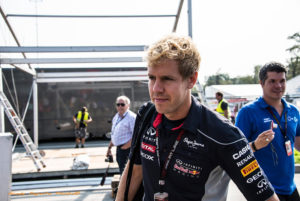
Sebastian Vettel Appreciates Formula 1 For its Environment Sustainability Plan
Sebastian Vettel appreciates Formula 1’s progress towards achieving their environment-friendly goals. Formula 1 recently updated its sustainability plan, announcing a detailed plan for ensuring […]

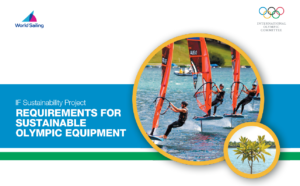
When it comes to the selection of Olympic equipment, International Federations (IFs) can mandate suppliers and have a positive influence across the sports goods and equipment industry. As part of the 2024 Olympic equipment selection, World Sailing decided to add sustainability as a criteria within the evaluation process as an opportunity to impact the wider marine industry.
While all of World Sailing Olympic equipment contracts require that companies operate in accordance with the IOC Supplier Code, the new requirements include the existence of a company sustainability policy, a life cycle assessment of the product, ISO 14001 certification and an environmental improvement programme.
The board-sports industry is a huge impactor to the environment through all the materials used, production processes and raw material extraction. Added to this is the amount of different types of plastics used to make the boards. There are on average seven different types of materials, making it almost impossible to recycle.
One of the windsurf board manufacturers,
Starboard, stood out with an existing strong sustainability offering within their products.
As part of their bid, the supplier demonstrated how they could reduce the environmental footprint from the production of the equipment. They did this by conducting a Life Cycle Assessment of their products, as well as a plastic and carbon footprint assessment at the company level and taking measures to reduce the footprint.
Click here to download the Case Study

